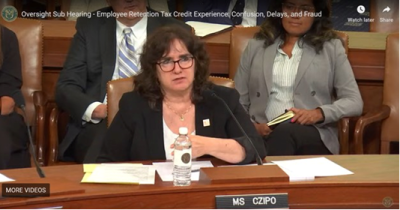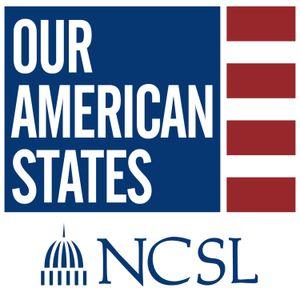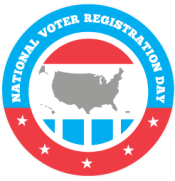Federal Grants/Contracting Reform Bill Advances
Before adjourning for the August Recess, the Senate Homeland Security and Governmental Affairs Committee approved the bipartisan Streamlining Federal Grants Act (S. 2286). The legislation seeks to improve the effectiveness and performance of federal grants and cooperative agreements, simplify the application and reporting requirements, and facilitate greater coordination among federal agencies responsible for delivering services to the public. Notably, the bill mandates consultation with charitable nonprofits and governments and calls for improving services delivered to communities and organizations that historically have not received federal grants or cooperative agreements. The substance of the legislation was informed by a hearing conducted in May; see National Council of Nonprofits testimony making the connection between the nonprofit workforce shortages crisis and the need for government grants and contracting reforms. The bill now goes to the full Senate for consideration, although no schedule for action has been announced. Efforts are also underway to promote introduction of the bill in the House.
Worth Quoting
- “Complicated and outdated processes to apply for federal grants often result in underserved communities missing out on opportunities to receive critical funding. This bipartisan legislation will help modernize this process and make sure every community in Michigan and across the nation has an equal opportunity to receive federal funding.”
~ Chair Gary Peters (D-MI), quoted in Committee Passes Peters Bipartisan Bill to Help Improve Federal Grant Application Process, Senate Homeland Security and Governmental Affairs Committee news release, Aug. 3, 2023.
- “The Michigan Nonprofit Association represents hundreds of organizations across Michigan that rely on federal grants to improve lives and livelihoods across our communities. We appreciate Senator Peters for leading this legislation that will ensure that all of these organizations can have a better chance of accessing these funds.”
~ Kelley J. Kuhn, President and CEO of the Michigan Nonprofit Association, quoted in the Committee news release.
Worth Reading
- The Streamlining Federal Grants Act and the Benefits to Charitable Nonprofits, National Council of Nonprofits, July 26, 2023.
Employee Retention Tax Credit
Protecting Legitimate Employers from Delays, Scam Artists

Congress and the Internal Revenue Service are dedicating considerable attention to problems arising from processing and enforcement of the Employee Retention Tax Credit (ERTC), the pandemic-era refundable payroll tax credit intended to preserve millions of jobs. In late July, an oversight subcommittee convened a hearing, The Employee Retention Tax Credit Experience: Confusion, Delays, and Fraud, at which every witness expressed concerns over delays employers have faced in receiving promised relief. Linda Czipo, President and CEO of the New Jersey Center for Nonprofits, testified before Congress on the importance of the ERTC to the survival of charitable nonprofits, while also highlighting the damage being done by the “ERTC mills,” i.e., nefarious groups popping up seemingly everywhere that are erroneously promising free money from the government.
The National Council of Nonprofits submitted a detailed statement in support of the ERTC that, while acknowledging problematic payment delays and other challenges, also praised Congress for creating a lifeline for nonprofits by converting traditional income tax credits previously available only for for-profit entities into payroll tax credits available for entities not making profits. By highlighting how the ERTC “saved nonprofits and businesses, reduced unemployment and hardship, and helped alleviate untold suffering that would have occurred in our communities,” the statement makes the case for Congress to use the payroll tax credits approach in response to future disasters and economic crises.
The day after the congressional hearing, the IRS issued a new set of answers to Frequently asked questions about the Employee Retention Credit. The document provides answers to 20 of the most common questions about eligibility and application for the ERTC (also called "ERC" by the IRS). Working to beat back scam artists in “ERTC mills,” the first Q&A is succinct: “Q1. Is every business eligible for the Employee Retention Credit? A1. No.” The longest answer responds to the question: “How do I know if I'm being scammed by an ERC promoter?” The IRS claims that it has caught up on its backlog of ERTC claims and has announced that it is stepping up enforcement of fraudulent use of the tax credit.
Worth Quoting
- “It’s hard to overstate the essential role that charitable nonprofits have played in COVID-19 pandemic response and recovery. It’s also hard to overstate how important the Employee Retention Tax Credit has been for the ability of nonprofits to continue serving our communities.”
~ Linda Czipo, President & CEO of the New Jersey Center for Nonprofits, testifying before Congress on the Employee Retention Tax Credit, July 27, 2023.
Worth Watching
- Hearing on the Employee Retention Tax Credit Experience: Confusion, Delays, and Fraud (2:22:35), House Oversight Subcommittee Hearing, July 27, 2023.
Worth Reading
- Frequently asked questions about the Employee Retention Credit, Internal Revenue Service, July 28, 2023.
Federal FastView
- SAVE Repayment Plan: A new income driven repayment plan for student loan debt announced by the Administration last month will allow borrowers to see their exact monthly payment amount, require one-time (as opposed to annual) enrollment, determine payment amounts based on income and family size, and cut payments to $0 per month for an estimated 1 million borrowers, according to the U.S. Department of Education. The Saving on a Valuable Education (SAVE) Plan replaces the existing Revised Pay As You Earn (REPAYE) Plan. Borrowers previously in REPAYE will be enrolled automatically. Beta testing is available for borrowers now and will not need to be resubmitted once the website goes live later this month.
- Improving Child Care Access: The federal government is proposing improvements to child care provider payment rates and practices to increase parental choice for child care arrangements and help stabilize operations for participating providers. Under proposed rules published this month by the Department of Health and Human Services, payments for child care by certain low-income families would be capped at no more than 7% of family income under the Child Care & Development Block Grant (CCDBG) program, which supports 1.5 million children each month. An estimated 80,000 families would benefit under the proposed changes. Currently only 14 states have copayment rates at or below the affordability mark of 7% of a family’s income, while others require payments up to 15%. The public can submit comments by August 28.
Worth Reading
- The Public Service Loan Forgiveness program still solidly in place – and more valuable than ever to nonprofits and their employees, Tiffany Gourley Carter and Amy Silver O'Leary, Nonprofit Essentials, July 19, 2023.
- Members of Congress break for August with no clear path to avoiding a shutdown this fall, Kevin Freking, Associated Press, Jul. 29, 2023.
Commentary
Taking Note of Bipartisanship
This era of mindless, histrionic partisanship at the federal level imposes significant costs on everyone. The excesses of partisanship are taking their toll, from the recent downgrading of the country’s credit rating to threats of another government shutdown, and more. But inflexible intolerance does not have to be the norm – at least when nonprofits are involved.
Today’s lead article discusses progress on fixing government grants and contracts by moving bipartisan legislation out of committee. Neither party has a stake in defending bureaucratic waste and complexity; reasonable people can agree on reducing needless burdens – and they are in the Streamlining Federal Grants Act. So far.
At the recent congressional hearing on abuses by third-party “ERTC mills” and scam artists (discussed above), all of the Representatives and witnesses agreed that bad actors must be stopped. The IRS likewise agrees and is stepping up enforcement.
Lastly, we note that bipartisan support is growing for the Charitable Act (S.566 / H.R.3435), the bill to enable taxpayers who take the standard deduction to also claim charitable deductions of up to $4,600/individual and $9,200/couple. The Senate bill has 16 sponsors, nine Democrats and seven Republicans. The House version now has 22 sponsors, equally divided between the parties.
All of which just goes to show that support for advancing the missions and work of charitable nonprofits is a bipartisan case study.
Finding Solutions to Nonprofit Workforce Shortages
Charitable organizations continue to confront recruitment and retention challenges. Some solutions have emerged that may be replicable around the country.
- Incentivizing Education to Meet Public and Workforce Needs: Last week, Oregon enacted a pilot program at universities to enhance hiring of enrolled students by eligible nonprofits. Participating students will see their tuition reduced by 20% when they work for registered nonprofits between 10-20 hours per week and are paid at least the state minimum wage. On August 3, the University of the Pacific in California announced that a local organization donated $200,000 to address the behavioral health care worker shortage in San Joaquin County through scholarships for students in the Master of Social Work and Master of Arts in Counseling Psychology programs. Springfield, Massachusetts, is creating a $750,000 Springfield Higher Education ARPA Fund to support local students pursuing degrees in priority areas like nursing, education, and “fields of study deemed essential in times of natural disasters,” to achieve the “long-term economic, educational and cultural benefits associated with higher education.” The nonprofit Lynden Healthcare Education has been offering low-cost or free nursing certification programs to help turn the tide on the nursing shortage in Whatcom County, Washington, which is crucial given that nursing shortages in the state are estimated to last through 2030.
- Government Wages and Benefits: State and local governments have increased wages and provided other benefits in response to the job vacancies in government agencies. Biddeford, Maine, is offering part-time 911 dispatchers $41 an hour, and has launched a $2,000 referral bonus for city employees, while also adopting a four-day workweek. Earlier this year, Missouri increased the salaries of state workers by 8.7% and included a $2 per hour increase for congregate care staff working “outside normal business hours” for the Department of Social Services, Department of Corrections, Department of Mental Health, and Missouri Veterans Commission. NOTE: While these wage and benefit changes do not directly affect charitable organizations, they do serve as powerful talking points for nonprofits negotiating rate hikes when seeking or renewing grants and contracts for services provided on behalf of governments.
Oregon Creates a Task Force to Modernize Grant Funding and Contracting
Oregon’s Governor signed legislation last week creating the Task Force on Modernizing Grant Funding and Contracting. Among other things, the two-year task force is designed to develop recommendations for improving wages for employees of nonprofit organizations, uniform application procedures and standard contracting language, multi-year contract terms, and payment models that prioritize full-cost recovery. The law reserves nine of the 15 positions on the task force for nonprofit representatives. The task force’s work is to be completed by September 2024. To assist the work of the task force and ensure as many nonprofit voices and experiences are heard, the Nonprofit Association of Oregon, which led the advocacy efforts, will be convening nonprofit leaders around the state in “policy labs” to discuss specific grant-making and contracting issue areas that will then develop into formal recommendations.
Worth Quoting
- “Governments do not have to be intimidated by service providers, and service providers don't have to be skeptics of governments.”
~ Chicago Mayor Brandon Johnson, quoted in ‘That is how you run a city’: Top mayors share tips for tackling crime, homelessness and hostile media, Daniel C. Vock and Elizabeth Daigneau, Route Fifty, Aug. 5, 2023. Mayor Johnson was leading a tour for other mayors of a Chicago homelessness intake center that is sited on city property but run by a charitable nonprofit.
American Rescue Plan Act Investments in Nonprofits
Local governments continue to announce investments in charitable nonprofits as they spend down their remaining funds of the $350 billion Coronavirus State and Local Fiscal Recovery Funds (CSLFRF). On July 25, Brown County, Wisconsin, officials awarded grants to 19 nonprofits to advance pandemic recovery in the county, including a grant to Big Brothers Big Sisters of Northeast Wisconsin to provide mental health support. Twelve nonprofits in Lowell, Massachusetts, will be recipients of the first round of the Ad-Hoc Grant Program, which supports projects and programs that include social equity, green initiatives, substance abuse recovery, and homelessness. Also in Massachusetts, the City of Medford awarded an estimated $500,000 in ARPA funds to 17 nonprofits, based on a community survey that sought to identify priorities and areas of investment like food assistance and housing services.
Nonprofits should be aware that coming up this month are some deadlines for applying for local ARPA funds. Organizations in Cache County, Utah, have until Friday, August 18 to apply for $515,000 in available grant funding if they experienced decreased revenue, increased costs, and other challenges covering operating costs. Nonprofits in Colorado with annual budgets of between $150,000 and $2 million can apply for the Nonprofit Infrastructure Grant to receive grants of “up to 30% of their annual operating budget, with a maximum award of $100,000.” Applications are due August 31. For more on nonprofits’ eligibility for CSLFRF dollars and how governments can partner with nonprofits see Strengthening State and Local Economies in Partnership with Nonprofits.
Trend Spotting:
Reforming Charitable Immunity
Lawmakers have been considering legislation to alter liability for cases of nefarious actions against children by government contractors and service providers, including individuals working at nonprofits.
- Maine recently enacted a law to prohibit legal immunity for nonprofits for sexual assault of a minor, sexual exploitation of a minor, and intentional torts. The new statute codifies a 2009 state Supreme Court case holding that the charitable immunity doctrine, which normally protects charitable assets from being used towards satisfying tort claims, does not apply to intentional torts.
- In Massachusetts, two measures (H.1446 / S.916) would remove liability limitations for sexual abuse of a minor. Three additional bills (H.1524, H.1544, S.1064) would eliminate charity as a defense to a tort claim but permit a limited defense if the personal injury was committed in the course of action to accomplish a directly charitable purpose. In written testimony, the Massachusetts Nonprofit Network noted that the current law balances charitable purpose, donor intent, and the ability for plaintiffs to be compensated in a tort action. Pennsylvania and Tennessee policymakers enacted similar legislation last year.
- Going the other way, a bill in Illinois would provide funding for liabilities of community-based foster care providers facing tort claims arising from their services. The measure would require the state to indemnify foster care organizations for damages in excess of $2 million.
NCSL Podcast
Charitable Nonprofits Working With States

OAS Episode 192 | NCSL Podcasts
Recognizing the substantial impact of the charitable nonprofit sector on the economy, the National Conference of State Legislatures podcaster Ed Smith sat down with David L. Thompson of the National Council of Nonprofits to better understand how charitable nonprofits work with legislatures and the states. Thompson explained the roles charitable nonprofits play in communities and how state government and nonprofits work together to address any number of challenges, and specifically the value of community-based organizations when it comes to helping government implement programs. He also noted a challenge that charitable nonprofits have in common with state government — a shortage of workers — and ways government and the nonprofit sector can advance policies to try to address those shortages.
In August, we celebrate
- Civic Health Month
- Aug. 6-12, National Health Center Week
- Aug. 17, National Nonprofit Day
Nonprofit Events
- Aug. 23, Policy Advocacy for Nonprofit Leaders (A Primer), Center for Nonprofit Excellence
- Aug. 24, Nonprofit+Grantmaker Conference, Alliance of Arizona Nonprofits & Arizona Grantmakers Forum
- Aug. 29-30, Idaho Nonprofit Conference, Idaho Nonprofit Center
- Sep. 14, UNA Annual Conference, Utah Nonprofits Conference
- Sept. 19, Nonprofit Leadership Summit, West Virginia Nonprofit Association
- Sep. 19-21, MNA Annual Conference, Montana Nonprofit Association
- Sep. 19-20, 2023 Collaborative Conference – In Person, Pennsylvania Association of Nonprofit Organizations
- Sep. 20-21, 2023 MCN Annual Conference, Minnesota Council of Nonprofits

National Voter Registration Day is just over a Month Away
National Voter Registration Day is on Sept. 19, 2023, and nonprofits need to get #VoteReady! Order your voter registration resources and materials now and start preparing your Get Out The Vote activities! Sign up for updates from Nonprofit VOTE.
Nonprofit VOTE Webinars
Democracy Goes Digital: Voter Registration Drives Using Online Tools
Thur. Aug. 17 | 2:00 pm Eastern
Join this discussion on online technologies to demystify the process and prepare organizations of all types to use digital voter registration tools to supercharge your voter outreach efforts and hear from experts with first-hand experience in using online registration tools to get their communities #VoteReady. Register now!
Staying Nonpartisan for 501(c)(3)s
Recorded July 11, 2003
Recognizing that there is nothing more important to voter engagement efforts of charitable nonprofit organizations than staying nonpartisan, this overview will you and your staff understand what’s allowed.
Advancing Mission During the August Recess
Both the House and Senate are on recess and away from Washington, DC, until after Labor Day. Most Members of Congress go back to their states and districts for much of the time. Nonprofit missions won’t be on hiatus in August, however, and public policy needs will continue even while lawmakers are taking a break from hands-on legislating. There’s an opportunity waiting to be seized: Meet with your elected officials in the coming weeks – while they are home!
So, HOW do you meet with them and WHAT should you talk about? We’re so glad you asked.
Stay in the Loop
Want to be the first to know policy developments and operational trends affecting nonprofits? Sign-up to receive our free newsletters, Nonprofit Champion and Nonprofit Essentials, and browse the archive of past editions.
Sign-Up